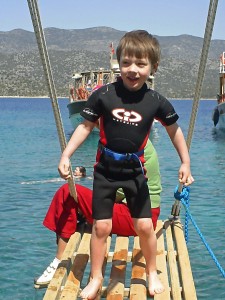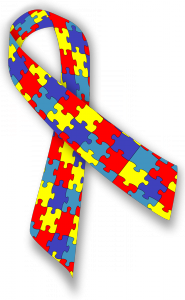Some fascinating facts about autistic people and music.
A few years ago I found myself at a party where one of the hosts was a doctor.
So unsurprisingly many of the guests were also physicians. The subject of autism came up (can’t remember how) and he told me that he had looked at the whole area of autism and music therapy. Music therapy he felt that in many cases it was extremely effective.
I was reminded of this conversation when I spotted this fascinating infographic.
The purpose of this blog post is to find out how well music therapy works for people on the autistic spectrum.
Now we have never used it for our son. On the whole he finds music a bit overwhelming especially when loud. So I’m very keen on hearing the views of other people.
It would be great if you could share your experiences in the comments section below. You might want to consider the following questions but everything you would like to share will be of interest to our readers:-
a) Have you or a loved one ever used music therapy because of ASD?
b) What did the music therapy involve?
c) How effective was the music therapy?
d) What is the role of music in your or their lives?
e) Finally would you recommend music therapy for others?
Thanks very much in advance!
From Visually.
| cagniforous | Music Therapy was the first therapy we tried with our daughter outside of her school (They do ABA with her at school). She’s been doing it for over a year now, and loves it! She loves music in general also. It consists of the therapist bringing several instruments and playing them / having my daughter play them, trying to get her to copy behaviors, say words, interact with the therapist. She’s made a lot of progress with it and has recently begun to say words. She is most motivated to say those words during her music therapy and often any new words come out during their sessions. We tried speech therapy for a bit, but I felt that the music therapy was actually helping her speech more. I only wish that Insurance would cover it! |
| AchVach | I Have used therapeutic listening with my son twice a day for 30 minutes each time. These was supervised by an occupational therapist. He wouldn’t listen to each piece for two weeks. Some music brotherly him and other pieces he enjoyed it. By the end of the two weeks he would listen to all pieces even those that brothered him. He did not need to complete the second cycle. The Therapy improved his motor and verbal skills and sensory issues. I believe it worked but it needs to be supervised. One cannot do it by themselves. It can bring the opposite result. As well, it needs to be done in combination with other occupational therapy. |
| MelodyJoy1 | I have not used “music therapy” with my son, per say, but I have found that if he’s distracted or tuned out I can get his attention far more easily by singing whatever I have to say, especially if I need to give him directions. I am pretty much always singing to him , because he resonates with music much better than speech. |
| Tiffimbody24 | My 4 year old non verbal daughter LOVES music therapy! She loves music period! At her school, they use music therapy to help with speech. She recently started trying to sing!!!! She loves playing instruments and dancing. Her and I now play, duck, duck, goose, wheel’s on the bus, and head, shoulders, knees, and toes! I’m very thankful for music therapy! |
| Shawnamj | My 2.5 year old non verbal son loves music. He will do hand movements to songs like itsy bitsy and if your happy and you know it clap your hands. I could never get near him with a tooth brush but I noticed him watching the Sesame Street brush your teeth song. If I sing the song he has no problem brushing his teeth. I think music will play a big part in his learning. |
| JohnJaneczek | Thank you for this post. As a an undergraduate music major, music is on quite often in our house. We have two kids on the spectrum, ages 7 & 3, We took our youngest to Kindermusik classes (a nation-wide franchise) and he responded very well, it involved sing songs, dancing, teaching the kids based on a theme, (one week was farm animals and the noises they make, one week was spanish words, etc) The first 30 minutes are just the kids and teacher, but for the last ten minutes, parents and siblings come in and join the class, they also have resources for music at home. He responds well and I would highly recommend it to others on the spectrum! |
| SimonParton | Great graphic, totally agree with all the info on there. I studied Music in university & wrote my dissertation about the relationship between music and autism. Primarily I used music technology to engage those with ASC in music making activities to explore different ways of communication. The beauty with technology is it can be altered (volume wise / sensory wise) and can enable all to be creative regardless of ability. My brother is autistic, and a lot of the time, the fear of getting something “wrong” is also overwhelming. My brother is now 21 and has started playing guitar and has become very interested in music as a whole. He definitely has perfect pitch (which I am very jealous of!!).
I found that repetition and familiarity worked and related directly, really enabled a sense of calm with my brother, explored a range of different communication methods and just seemed to work when using technology. I now work for a company that runs songwriting / music production workshops with a range of participants. I’ve worked with some ASC groups and have found it again incredibly useful (music and music technology). While what I do isn’t strictly labeled as practising music therapy, I think music making and exploring creativity/communication is definitely a form of therapy. If you’d like any more info on what I’ve done and my experiences please don’t hesitate to get in touch on simon.parton@hotmail.co.uk |




